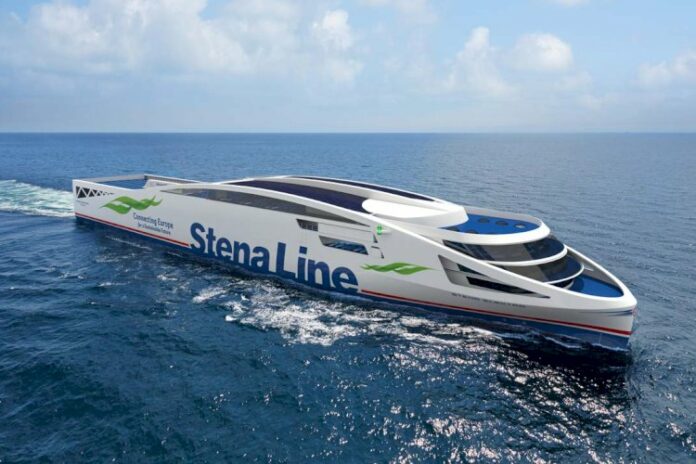Ferry shipping company Stena Line continues to reduce CO2 emissions and is now ten years ahead of the international shipping targets for reducing emissions. In the newly published sustainability overview “A Sustainable Journey” Stena Line reports a reduction of both total CO2 emissions and per transported ton onboard the ferries. New, larger and more energy efficient vessels, AI assisted captains and an increased punctuality are some important measures.
Despite a tough situation for the ferry industry due to COVID-19 ferry shipping company Stena Line continues its sustainable journey. In the newly published sustainability overview Stena Line presents initiatives, improvements and challenges within the sustainability area as well as give account on the companies ambitious sustainability targets.
During 2019 Stena Line to reduce CO2 emissions and is now ten years ahead of the international shipping targets for reducing emissions. The company reduced the total CO2 emissions with 1,7 %, corresponding to 24 000 tonnes of CO2 in total.
Even more important is that Stena Line continued to improve the efficiency and reduced the emissions per transported ton freight and passenger vehicles onboard the vessels with 3,6% CO2. This means that Stena Line, ten years ahead, already meets the International Maritime Organisation (IMO) targets for 2030 of a 40 % reductions in CO2 emissions efficiency from 2008-2030.
Erik Lewenhaupt, Head of Sustainability at Stena Line, says:
“We aim to be the leader in sustainable shipping and we have high ambitions. During the last ten years we have improved the efficiency with more than 320 energy efficiency actions onboard and onshore, both technical and operational improvements and investments. The introduction of AI assisted vessels and the delivery of our first new larger and energy efficient vessels that went into operations on the Irish Sea during the spring, are some highlights from last year.”
The largest challenge for the shipping industry as a whole and for Stena Line is to reach zero emissions by 2050, in line with international targets.
Erik Lewenhaupt, Head of Sustainability at Stena Line, says:
“We are currently working in parallel with reducing fuel consumption, and emissions to sea and air and at the same time exploring and evaluating the fuels for the future. We are currently involved in several projects with alternative fuels and propulsion, including the world’s first methanol powered vessel and a battery project with the aim of launching a fully battery powered vessel before 2030.”



